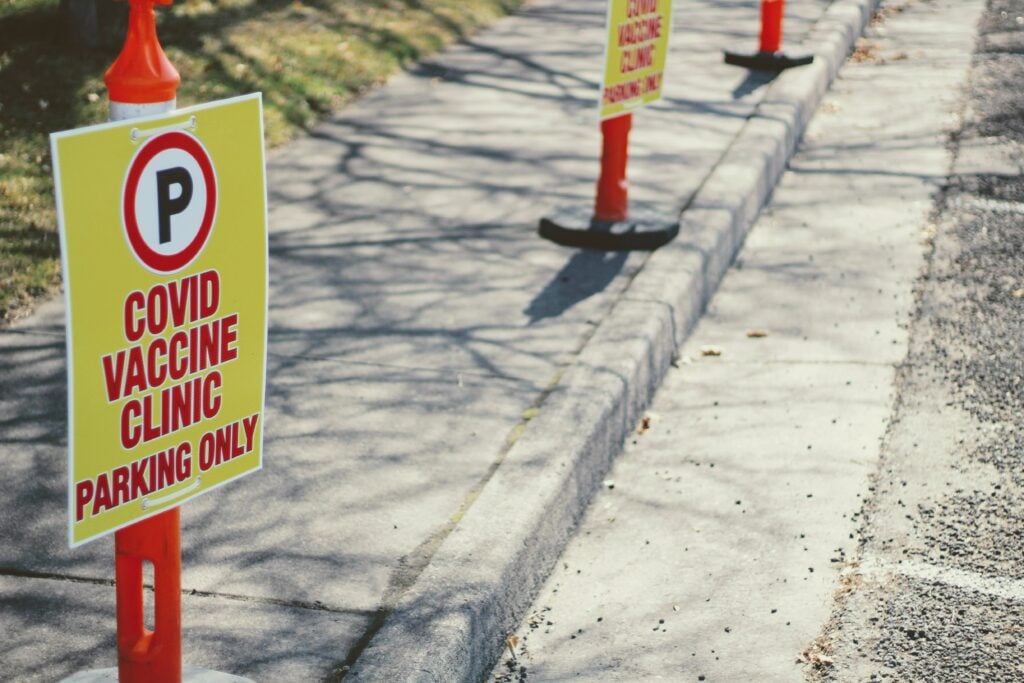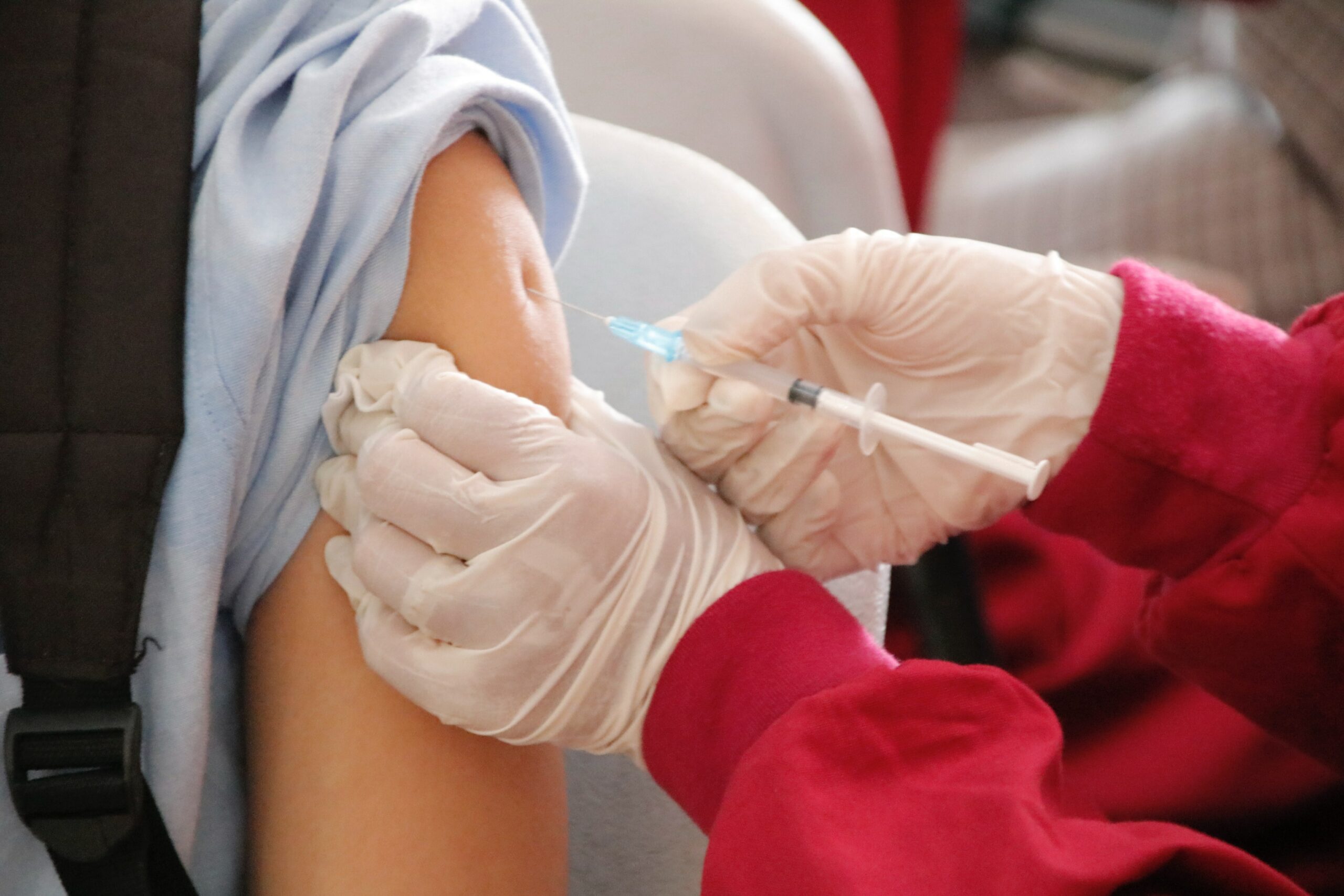
There are few things more important to our health than vaccines. They protect us from diseases that would otherwise be dangerous or deadly, and for this reason, they should not be overlooked. Covid-19 vaccines are saving lives around the world, but many people still question their effectiveness.
We have compiled some recent statistics on Covid-19 vaccines for you below so you can see just how much these life-saving vaccinations have helped in UK hospitals alone.
Consider the following information from the United Kingdom. Within two weeks of receiving their second dose, nearly everyone in a study of more than 200,000 individuals had developed antibodies against the virus. Despite initial worries that previous vaccines might be less helpful against the Delta variant, studies show that both AstraZeneca and Pfizer-BioNTech jabs reduce hospitalization rates by 92-96 percent.
In comparison to the danger of contracting the disease, many health professionals have emphasized, the dangers associated with a vaccine are minor.Even though most people are aware of the necessity for vaccines, a significant number still refuse to get them. According to a recent IMF study, this ranges from 10% in the United Kingdom to 20% in Japan and 60% in France.
The result has evolved into a culture war on social media, with many internet users claiming that the hesitant are just ignorant or selfish. However, specialists in medical decision-making contend these options are frequently determined by a variety of complexities that must be addressed sensitively if we want to achieve population immunity.
The five C’s
First, some clarifications are in order. While it may be easy to assume that everyone who refuses a vaccination is antivaccine, the worries of most vaccine-hesitant individuals should not be conflated with the far-fetched theories of hardline anti-vaxxers. “They’re very vocal and have a prominent presence offline and online,” says Mohammad Razai at the Population Health Research Institute at the St George’s University of London, who has studied the various psychological and sociological influences on people’s decision making regarding vaccinations. “But they’re a tiny minority.”
The majority of vaccine-hesitant individuals do not have a political objective or are against scientific progress; instead, they are simply undecided about whether or not to take the shot.
The good news is that many people who were hesitant in the past have changed their minds. “However, even a delay is considered a health hazard since viral infections spread rapidly,” explains Razai. This would have been challenging if we were still fighting against the previous versions of the virus because of the new Delta variant’s increased transmissibility.
Fortunately, scientists have been researching vaccine refusal for a long time before Sars-Cov-2 was identified in Wuhan in December 2019, and they’ve developed numerous models to explain the variations in people’s health behaviors. One of the most promising is the five Cs model, which considers the following psychological variables:
- Confidence: The person’s trust in vaccines’ effectiveness and safety, as well as trust in the health services and policymakers who are deciding on their deployment.
- Complacency: Whether or not the individual considers the disease to be a critical risk to their health.
- Curiosity: The individual’s participation in extensive information research to compare the costs and benefits.
- Convenience (or constraints): How simple it is for the individual to get the immunization.
- Collective responsibility: The tendency to shield others from infection by vaccinating oneself.
In 2018, Cornelia Betsch and colleagues at the University of Erfurt in Germany posed questions to participants regarding a variety of statements that assessed each of the five C’s and then compared respondents’ actual uptake of relevant procedures like influenza or HPV vaccination with their responses. T
They discovered that the five Cs could account for a significant amount of variation in people’s behaviors and that they consistently outperformed many other potential predictors – such as questionnaires that focused more exclusively on issues of trust without taking into account the rest of the variables.
In unpublished research, Betsch applied the five Cs model to predict people’s acceptance of Covid-19 vaccines, and her findings thus far suggest that the five Cs model can account for the vast majority of the variation in individuals’ decisions.
There will be additional reasons, of course. According to recent research from the University of Oxford, a fear of needles is a major barrier for approximately 10% of the population.
Confirmation bias
Consider the first two Cs, namely the confidence in the vaccine and complacency about disease risk.
Humans have two seemingly contradictory tendencies: a “negativity bias” and an “optimism bias”, according to psychologist Jessica Saleska at the University of California, Los Angeles. The negativity bias refers to how you evaluate events beyond your control. When bad news is presented to you, it tends to stay in your memory, according to Saleska.
The optimism bias, on the other hand, is concerned with your self-assessments – whether you believe you are fitter and healthier than the average person. These biases may operate independently, implying that you might concentrate on the dangerous side effects of vaccines while maintaining that you are less likely to fall ill.
There’s also the well-known confirmation bias, which can distort people’s perceptions of the virus’s dangers by providing a ready supply of misinformation from unreliable sources that exaggerate vaccine risks. This dependence on false sources means that those who perform well on the five Cs scale’s “calculation” component – those who actively seek information – are generally more vaccine-hesitant than those who score lower.
Remember that these psychological quirks are quite widespread. Even if you have obtained the vaccination, they may have influenced your decision-making in a variety of areas of life. To ignore them and to assume that vaccine-hesitant people are purposefully ignorant is a reckless attitude.
We must also consider the numerous social forces that may influence individuals’ uptake – the “constraints/convenience” factor in the five Cs. Simply put, people who are already on the fence will be deterred by the notion that getting a vaccine is difficult. Betsch has said that this might have slowed down vaccine uptake in Germany, which has a notoriously complex regime for identifying who is qualified to receive it at any one moment. People would react far more rapidly if they received automatic notifications, she believes.
Dr. Razai agrees that we must consider convenience, especially for those in poorer areas who may have trouble with the time and expense of the journey to a vaccination center. “Traveling to and from a facility may be a significant problem for most individuals working on minimum wage or unemployment benefits” he added. As a result, it’s frequently preferable for vaccines to be given in local community centres. “I believe there is anecdotal evidence that it works better in places of worship, mosques, gurdwaras, and churches,” Dr. Razai said.
Finally, we must consider the circumstances of people’s decisions, according to Razai. For example, structural racism might have led certain ethnic groups to have less overall trust in medical authorities than others. It is easy to dislike someone else’s choices if you don’t comprehend their daily obstacles.
So what can be done?
There is no simple solution, but health authorities can continue to provide easy-to-understand, correct information about the most pressing issues. According to a recent study published by Imperial College London’s Institute of Global Health Innovation (IGHI), the main challenges faced by patients include side effects and worries that the vaccines have not been adequately tested.
For the former, graphics depicting the vaccine’s relative risks versus real disease might offer some context. For the latter, Razai believes that we need more education about the vaccines’ history of development. mRNA has been studied in vaccines for decades, with lengthy trials testing its safety. “Because we’ve utilized these technologies in other sectors of healthcare and research, none of the technology that has been used would be harmful,” Razai adds.
According to Sarah Jones, a post-doctoral researcher who co-led the IGHI study, it will be necessary to use a targeted approach. “I would advise governments not to believe they can communicate with a large number of niches through one mass-market vaccine message”, she says. She suggests working more creatively with many successful messaging partners to achieve this goal.
However, Razai warns that health providers must make it clear that they are engaged in an open discussion rather than addressing them dismissively. “We have to pay attention to people’s complaints, accept them, and provide information so that they can make an educated choice”.
“We’re in a situation where we need to talk to people”, says Saleska, who believes that it’s critical to have a two-way discussion. “That is something that we may all learn as we discuss these problems with our friends and family. Being polite and recognizing their worries — I believe this may be more essential than just reciting facts or statistics. It’s usually about the personal connection rather than the information you provide.”
